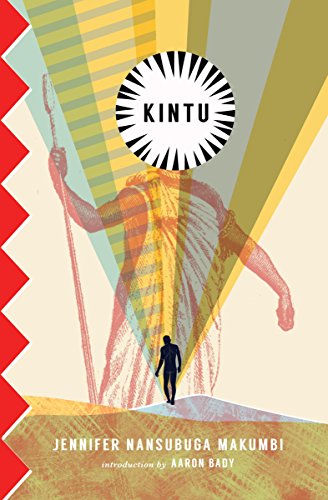Kintu
The highly celebrated debut novel from an award-winning Ugandan author, Kintu presents a sweeping portrait with perspectives on Ugandan culture, history and psychology.
Kinto Kidda, a mid-18th century tribal leader of modern mythical significance to his clan, sets out on a political journey to the capital district of Buganda to pay homage to the new king. The musings of his band of warriors play out in grand cultural dialog worthy of Hemingway: the relationship of the men to their land, their women, their spiritual powers are worthy surrogates for the drama that the plot itself lacks. The journey—and the curse it unwittingly calls down upon Kintu’s head—seems a metaphor for the region’s struggle to free itself from the prolonged disaster of colonial occupation as the novel winds forward to the violence of present-day Uganda.
Men are the central perspective, and indeed Makumbi herself has referred to the novel as “masculinist.” But the characters’ focus upon their women is so expressive—a combination of self-vitiating sensuality and spiritual awe—that the reader is drawn more deeply into their lives than if they were speaking for themselves. The conflict of Kintu’s marriage to twin wives, Nnakato and Bibirye, the influence of royal mothers upon the turbulent and bloody throne of Buganda, extend down through the centuries to Kintu’s descendants as they seek to recover their land and dignity.
Much in the novel may be fully accessible only to Ugandans, but the mood the unfamiliar language and references conveys is pure, high-octane humanity. Makumbi combines myth, folklore and spirituality into a major achievement of immersive storytelling. Not to be missed.










